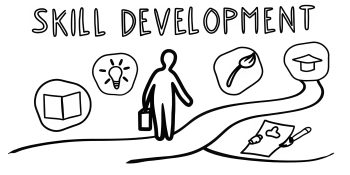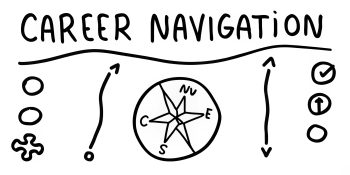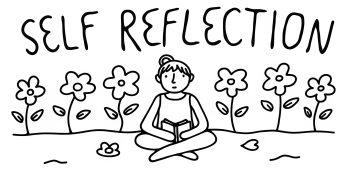Question More, Action Knowledge.
Remember, at QMAK, we don’t just teach; we empower. We don’t just inform; we inspire. We don’t just question; we act. Become a Gold Member, and let’s unlock your child’s full potential, one question at a time.
In a world filled with complex problems and multifaceted situations, relying on a single perspective can often lead to biased, incomplete, or inaccurate conclusions.
To navigate this complexity and arrive at more robust understanding and decision-making, we need a powerful tool: triangulation.
Mastering the art of triangulation is crucial for personal growth, effective problem-solving, and sound judgment in all aspects of life.
Triangulation is a mental model that emphasizes the importance of gathering information and perspectives from multiple sources to gain a more comprehensive and reliable understanding of a situation.
The term is inspired by the navigational and surveying technique of determining a location by measuring angles from two known points, forming a triangle.
In the context of problem-solving and decision-making, triangulation involves actively seeking out diverse viewpoints, data, and evidence to form a more accurate picture of the issue at hand. By considering multiple angles and sources of information, we can mitigate the influence of biases, assumptions, and blind spots that may cloud our judgment when relying on a single perspective.
At the heart of triangulation lies the principle that the more data points we have, the more accurate our understanding becomes. This means actively seeking out information from a variety of sources, each offering a unique lens through which to view the problem or situation.
For example, when trying to assess the effectiveness of a new marketing strategy, a manager might triangulate by gathering data from customer surveys, sales reports, and feedback from frontline employees. Each of these sources provides a different piece of the puzzle, and when combined, they offer a more comprehensive and nuanced understanding of the strategy’s impact.
Another key aspect of triangulation is subjecting our own perspectives and conclusions to the scrutiny of others. This can involve seeking out peer review from colleagues or experts in the field, inviting them to challenge our assumptions, offer alternative viewpoints, and identify potential weaknesses in our reasoning.
In the academic world, triangulation through peer review is a cornerstone of the scientific process. By subjecting research findings to the critical evaluation of other experts, scientists can refine their conclusions, address blind spots, and ultimately arrive at more robust and reliable results.
Triangulation also involves a commitment to thorough research and data analysis. This means going beyond surface-level information and digging deeper to uncover relevant data, studies, and trends that can inform our understanding of a situation.
For instance, when considering a major investment decision, an investor might triangulate by analyzing market trends, studying the financial health of the company, and researching the competitive landscape. By combining these various sources of information, the investor can make a more informed and confident decision.
Engaging in triangulation offers numerous benefits for problem-solving, decision-making, and personal growth:
1. Enhanced Accuracy: By gathering multiple perspectives and data points, we can arrive at a more accurate understanding of a situation, reducing the risk of biases or blind spots skewing our judgment.
2. Reduced Uncertainty: Triangulation helps us navigate complexity by providing a range of possibilities and evidence, allowing us to narrow down the most likely outcomes and make more informed decisions.
3. Improved Confidence: When we subject our own perspectives to the scrutiny of others and engage in thorough research, we can have greater confidence in our conclusions and decisions.
4. Increased Credibility: Triangulation demonstrates our commitment to due diligence and openness to alternative viewpoints, enhancing the credibility and persuasiveness of our arguments and recommendations.
Imagine someone holds the belief that lemurs are the most ferocious animals alive. To test this assumption, they decide to triangulate by gathering opinions from three experts: a zoologist, a zookeeper, and a veterinarian.
The zoologist informs them that while lemurs can be aggressive when threatened, they are far from the most ferocious animals, ranking below many predators in terms of their physical capabilities and hunting prowess. The zookeeper shares anecdotes of lemurs displaying fierce territorial behavior but notes that this aggression is relatively mild compared to that of many other species. Finally, the veterinarian explains that lemurs, while capable of causing injury, are not built for predation and pose a much lower threat than many other animals they treat.
By triangulating these expert opinions, the individual realizes that their initial belief about lemurs’ ferocity was likely inaccurate. They may not have a definitive answer on which animal is truly the most ferocious, but they now have a more nuanced understanding of where lemurs fall on the spectrum and can adjust their perspective accordingly.
Helping children understand and apply the principles of triangulation is a valuable gift that can set them up for success in navigating the complexities of the world. Here are some strategies for introducing this concept to young minds:
By introducing triangulation in an age-appropriate and engaging way, we can equip children with a powerful tool for critical thinking and decision-making that will serve them well throughout their lives.
Beyond its applications in problem-solving and decision-making, triangulation can also be a valuable framework for personal development and achieving individual goals.
Here are some ways to leverage the power of triangulation for personal growth:
Goal Setting: When setting personal goals, triangulate by researching different strategies, seeking advice from mentors or experts, and evaluating the feasibility and alignment of the goal with your values and circumstances.

Skill Development: To master a new skill, triangulate by combining self-study, seeking feedback from experienced practitioners, and actively applying the skill in real-world situations.

Career Navigation: When making career decisions, triangulate by exploring different paths, talking to professionals in various roles, and assessing how each option aligns with your strengths, interests, and long-term aspirations.

Self-Reflection: Engage in triangulation of the self by seeking feedback from trusted friends, family members, or mentors, and comparing their perceptions with your own self-assessment and goals for personal growth.

By actively seeking out multiple perspectives and sources of insight, we can gain a more comprehensive understanding of ourselves and the paths available to us, enabling more informed and purposeful personal development.
In a world of complex challenges and multifaceted situations, triangulation emerges as a powerful mental model for navigating uncertainty, making sound decisions, and fostering personal growth. By actively seeking out multiple perspectives, subjecting our own views to the scrutiny of others, and engaging in thorough research, we can arrive at more accurate, nuanced, and reliable understanding.
Cultivating the skill of triangulation is essential for success in all aspects of life. By teaching this valuable tool to children and incorporating it into our own problem-solving and decision-making processes, we can foster a culture of critical thinking, openness to diverse viewpoints, and commitment to personal and collective growth.
So let us embrace the power of triangulation, both in our individual journeys and in our roles as educators, mentors, and leaders. Let us actively seek out the wisdom of multiple perspectives, challenge our own assumptions, and navigate the complexities of the world with greater clarity, confidence, and purpose.
Objective: To gather and compare information from multiple sources.
Objective: To apply triangulation in personal goal-setting.
Objective: To practice applying triangulation in problem-solving scenarios.
Objective: To understand the importance of peer review in triangulation.
Good Night, and Good Luck provides a masterful demonstration of triangulation through Edward R. Murrow’s methodical dismantling of McCarthyism.
The film shows how drawing evidence from multiple independent sources – archival footage, witness testimonies, and investigative journalism – creates a more complete and credible picture of truth than any single source could provide.
As students watch Murrow and his team meticulously cross-reference information and verify facts from different angles, they witness how triangulation can expose inconsistencies and reveal deeper truths that might be missed by relying on a single perspective.
The film’s black-and-white cinematography and use of real historical footage underscore the importance of seeking clarity through multiple viewpoints, especially when confronting complex social issues.
Through Murrow’s strategic use of triangulation to challenge McCarthy’s accusations, students learn how this mental model can be a powerful tool for critical thinking and truth-seeking in their own lives.
Verse 1:
In a world of complexity, where perspectives collide
It’s easy to get lost, and let our judgment subside
But there’s a tool that can guide us, through the fog and the noise
It’s the power of triangulation, the wisdom of three voices
Chorus:
Triangulation, seeking multiple views
Gathering data, from different avenues
Peer review and research, help us see things clear
The wisdom of three, conquers doubt and fear
Verse 2:
When making tough decisions, or setting personal goals
Triangulation helps us, navigate the unknown shoals
We seek advice from mentors, explore different paths
Assess our strengths and interests, to find the right math
(Chorus)
Bridge:
Teach this skill to children, let them learn to navigate
The complexities of life, with a curious and open gait
Encourage them to question, to seek out different views
The wisdom of three, will guide them through
Verse 3:
In self-reflection too, triangulation plays a part
We seek feedback from others, to understand our heart
Compare their perceptions, with our own self-assessment
The wisdom of three, leads to personal advancement
(Chorus)
Outro:
So let us all embrace, the power of triangulation
In problem-solving, decision-making, and personal exploration
By seeking multiple perspectives, and challenging our own
The wisdom of three, will help us grow and hone
Remember, at QMAK, we don’t just teach; we empower. We don’t just inform; we inspire. We don’t just question; we act. Become a Gold Member, and let’s unlock your child’s full potential, one question at a time.